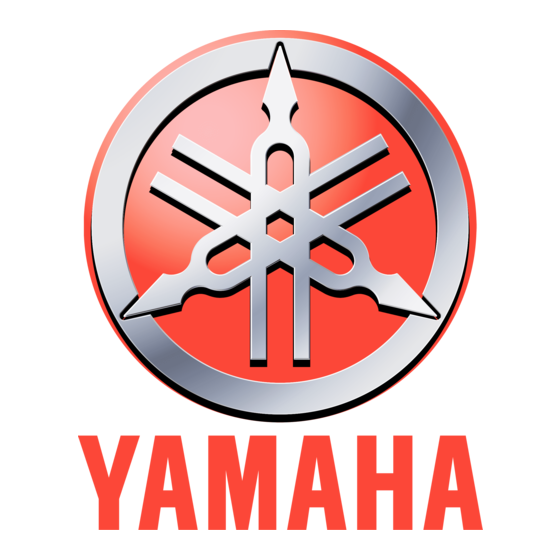Table of Contents
Advertisement
Quick Links
OWNER'S MANUAL
MANUEL DU PROPRIÉTAIRE
BEDIENUNGSANLEITUNG
USO E MANUTENZIONE
MANUAL DEL PROPIETARIO
Read this manual carefully before operating this vehicle.
Il convient de lire attentivement ce manuel avant la première utilisation du véhicule.
Bitte lesen Sie diese Bedienungsanleitung sorgfältig durch, bevor Sie das Fahrzeug in Betrieb nehmen.
Leggere attentamente questo manuale prima di utilizzare questo veicolo.
Lea este manual atentamente antes de utilizar este vehículo.
2024
YZ250F
YZ250F
YZ250FR
BMF-28199-50
Advertisement
Table of Contents
Troubleshooting














Need help?
Do you have a question about the YZ250F 2024 and is the answer not in the manual?
Questions and answers